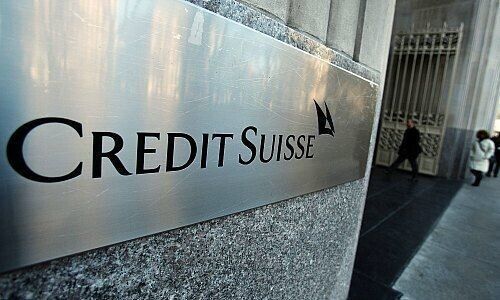The Swiss bank is due to update investors on its money management activities, following a host of complications in recent months. finews.com on Credit Suisse's new plan of attack.
Eric Varvel (pictured below) is up: the 30-year American veteran of Credit Suisse is due to bring investors up to date at an event on Tuesday. CEO Thomas Gottstein ordered a strategy review of the 438.5 billion Swiss francs ($492 billion) unit several months ago.
Gottstein, who took the job ten months ago, is expected to deepen his predecessor's 2015 strategy: more wealth management and digitization, less investment banking – which may include binding limits for risk-taking. He is also poised to outline Switzerland's second-largest bank plans in money management.
A key question is whether its set-up and legal structure inside the larger wealth unit is still appropriate, as institutional investors increasingly push for more independence in asset managers.
Growth Vs Exit

Credit Suisse also needs to decide where its operational focus lies: the so-called CSAM unit's core business is index and mutual funds, credit, real estate, and so-called multi-asset vehicles. Nearly one-third of its assets sit within highly specialized alternative investments: hedge funds and private market vehicles.
The Swiss bank isn't expected to embark definitely on the path forward until mid-2021. There is little substantial indication Credit Suisse intends to abandon asset management altogether.
Setbacks And Sputters
Credit Suisse is more likely to push into more scalable growth areas. The unit has taken in more than 70 billion in net new money since Varvel took over in 2016, more than 9 billion this year along (Varvel was dispensed back to investment banking last year, leaving the fund unit bereft of its own leadership).
However, CSAM has sputtered somewhat since last fall: it suffered a series of embarrassing setbacks including a hefty kiss-off with York, a hedge fund it took a major stake in ten years ago, with Softbank, and with insurance-linked products with a 1.4 billion franc volume.
Isolated In One Area
Simag represents another snafu: partnered with Switzerland's prestigious ETH technical university, the quant start-up was quietly folded back into Credit Suisse in October. Algorithms written by ETH professor Didier Sornette and ex-GAM boss David Solo couldn't withstand March and April's market ructions.
The setbacks appear isolated – except that they all played out in the wider alternative investment space Credit Suisse has long cultivated as a lucrative niche. While this worked well in booming markets and ultra-low interest rates, it came unglued earlier this year when liquidity dried up.
Reversal On ETF Strategy
Instead, industry giants like Blackrock and Vanguard padded their market share when demand for easily-traded passive products like exchange-traded funds surged. Credit Suisse sells indexed products but didn't return to ETFs (it sold to Blackrock in 2013) until earlier this year. It pulled in 4 billion francs so far since February.
The other major problem to emerge in more difficult market conditions is how intertwined alternative investment business can be. Credit Suisse's supply chain finance fund is an example of this: Softbank invested in a $7.5 billion supply chain finance fund the Swiss bank operated with Greensill Capital.
Complicated Ties
Softbank also poured money directly into Greensill, and Credit Suisse lent to Softbank founder Masayoshi Son over in its private banking arm.
The decision to write-off York and fold Simag show that Varvel and Gottstein have already begun restructuring Credit Suisse's alternative asset management business. An entire retreat is unlikely: a credit shop run by veteran John Popp is a flagship product at CSAM.
Aladdin And CSX
Popp is also responsible for a new private corporate credit unit launched with Qatar three months ago. Credit Suisse also highlights Next, which invests in financial technology start-ups. In addition, Credit Suisse is likely to signal expanding its funds offering in Switzerland and Europe, for example, thematic funds like technology, real estate, or bond strategies.
Digitization is also a perennial hot topic: more than 350 billion francs of the unit's assets are managed via Blackrock's Aladdin. The technology enables extensive automatization and standardization of processes. It also helps Credit Suisse to get funds directly to private investors (the newly-launched CSX digital bank represents a potential channel to do so).




































